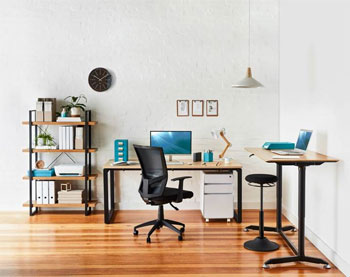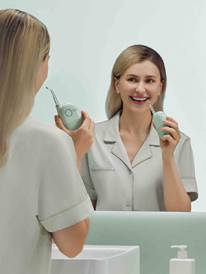Dr. Suzy Green and Anita Birges Workspace Perfection Interview
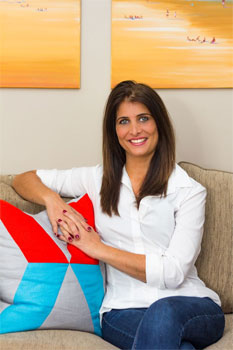
Dr. Suzy Green and Anita Birges Workplace Perfection Interview
As the Minimalist and decluttering trends surge across the world thanks to the likes of the popular documentary 'Minimalism' and book 'The life-changing magic of tidying up,' many people are overhauling their own living areas and workspaces, but does minimalism work for everybody?
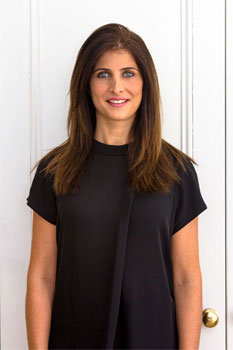 Interview with Anita Birges, Declutter Expert
Interview with Anita Birges, Declutter Expert
Question: What are your top decluttering tips for our work spaces?
Anita Birges: Whether you work from home, work in an office or from a co-working space– you spend most of the day at your workspace so you should feel stimulated and inspired. If your workspace is making you feel anxious, stressed or generally disorganised it's time to make a change, and you will be thankful you did! Having a clutter-free and stylish workspace will not only help you feel refreshed, but also feel a sense of calm.
Top Tips:
Set aside time to commit to decluttering
Remove all distractions.
Put a file organisation system in place – the J.Burrows desktop file storage organiser from Officeworks is a great piece to start with!
Question: Can you share your 10-minute guide to decluttering and setting up the ideal workspace?
Anita Birges: Evaluate your decluttering requirements
Organise your desk drawer
Arrange your paperwork
Remove distractions
Re-evaluate your office furniture
Declutter daily
Question: Is the minimalist trend a vital aspect to decluttering within an office?
Anita Birges: 'Less is more" is the mantra of a minimalist workspace. Your workspace will be clear of clutter, your storage and furniture will be in neutral colours and you love clean and simple lines. The Officeworks Floyd Loop Log Desk priced at $49 is a great example of this.
Once you have the minimalist approach in place, you need to follow a simple rule: one in-one out. This should apply to your desk and surrounding office space as well. If you bring in anything new (furniture, office supplies, technology), remove the old. This will reduce duplicates in future and will keep your space clutter-free.
Question: Why does minimalist work for everyone?
Anita Birges: Research shows that having a lack of clutter assists with focused attention. And whilst we've all been encouraged to 'multi-task" there's growing research to suggest that our brains don't work well at all in multi-tasking mode and in fact it can be much better for our well-being and for productivity to focus on one thing at a time
Question: How can we create a clean desk space?
Anita Birges: There's creative mess and then there's simply a DIRTY MESS... However, there will come a time where the mess gets out of hand.
Sort your items into two piles, -use' and -don't use' and allocate your drawer items. This will give you an idea of what to keep and what to throw out. Once you've identified your keep pile, pop them in your top drawer so that those things are close by and easily accessible.
Taking five minutes at the end of each day to remove any dirty dishes, leftover food and giving your workspace a quick wipe down to ensure that the creative mess doesn't turn into dirty mess.
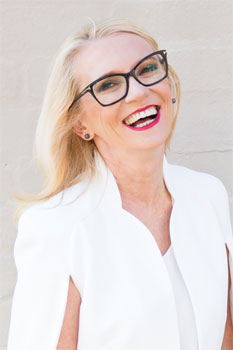 Interview with Dr. Suzy Green, Positive Psychologist
Interview with Dr. Suzy Green, Positive Psychologist
Question: Can you share with us the different workspace types?
Dr. Suzy Green: To help Australians understand why they work better in certain workspaces, I teamed up with Officeworks to help people set up their workspaces for success and there are four general workspaces that people relate to.
The Minimalist Workspace
Having a simplified workspace with a minimalist touch will provide the opportunity to focus, with less detail to detract us from the task. Whilst this may not be your preference, be mindful that if you have one large task to complete in a brief period of time and need to focus, perhaps clearing your desk and only leaving what's necessary could be the best approach.
The Highly Organised Workspace
This type of workspace is generally useful for when juggling a number of projects or feeling a tad overwhelmed. Investing half an hour at the beginning and end of the day can assist in bringing order and focus to the multiple tasks you need to achieve. If this is not your style, it can be worthwhile considering if you are feeling overwhelmed with too much on.
The Creative Mess Workspace
This is the home of the 'crazy ones, the misfits…the ones who see things differently" or so the much quoted saying by Steve Jobs goes. This workspace is the home of the highly creative ones who thrive on mess. And whilst this style may instil anxiety is some of us, research suggests that creativity is heightened by a messy desk!
The Styled Workspace
This workspace is for those that have an appreciation for beauty and excellence and an eye for detail. You'll find their workspace only contains visually appealing objects that are carefully selected for their practicality, but mostly their beauty... For many, this style can seem superficial and perhaps even a distraction from the reality of what needs to be done. However, research suggests that bringing your attention to beauty in our daily lives can be a simple yet powerful mood-booster. Research also tells us that experiencing a boost to your mood also heightens creativity – so consider the benefits of creating a beautiful workspace. Officeworks has recently a rise in metallics and rose gold and has a range of products to style your workspace.
Question: Which workspace type is your particular favourite and why?
Dr. Suzy Green: I do love order. I find I can think more clearly when my desk is organised and of course this is supported by the science! However, I have to admit it's been a challenge as I'm probably naturally quite messy! And that does work in my favour when I need to put my creativity to work and again this finding is supported by science.
 Question: Why do people work better in different work space environments?
Question: Why do people work better in different work space environments? Dr. Suzy Green: The concept of the workspace as an active support and tool for getting work done is gaining increasing attention in psychological research studies. Research suggests that our environment can play a huge role in how we feel emotionally at work and in turn how it affects our productivity.
And whilst we can make some general statements about what's best for the majority of us, we also know that, as individuals, we have different personalities, styles and preferences which play a large part in how we prefer to work.
For example people can benefit from a sit stand desk where people can work off a laptop and easily set it up on a top of a desk. The Wynston Sit Stand desk available at Officeworks suits people coming in and out of an office where they can quickly take a phone call or send an email.
Question: Are some people better suited to a work-from-home environment than others?
Dr. Suzy Green: Yes, those that have capacity for 'self-regulation" are able to manage distractions much better and have greater levels of attentional control. However we now know that these skills can be learnt so if you want to be a work-at-homebody then you just need to learn and build your self-regulation muscle! Set some goals, boundaries and get to work.
Interview by Brooke Hunter
MORE

